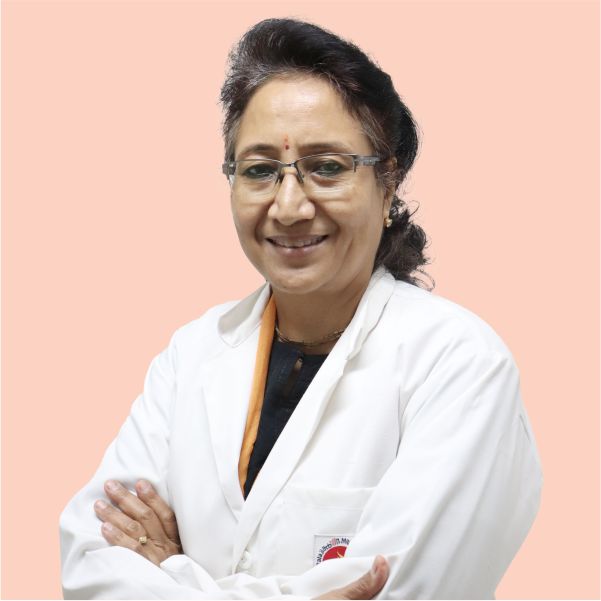Genodermatoses, also known as genetic skin disorders, encompass a diverse group of rare, hereditary conditions that affect the skin, hair, nails, and mucous membranes. These conditions are caused by mutations in specific genes, leading to a wide range of dermatological manifestations. Genodermatoses can vary widely in their presentation and severity, and they often require specialized care from dermatologists with expertise in genetic skin disorders.
Diseases Treated By The Department
- Ichthyosis: A group of disorders characterized by dry, thickened, scaly, or flaky skin.
- Epidermolysis Bullosa: A group of diseases that cause the skin to be very fragile and to blister easily.
- Neurofibromatosis: A condition that causes tumors to form in the brain, spinal cord, and nerves.
- Tuberous Sclerosis: A genetic disorder that causes non-cancerous (benign) tumors to grow in the brain and other vital organs.
- Ehlers-Danlos Syndromes: A group of disorders that affect connective tissues, characterized by skin that can be stretched much more than normal, and can be fragile and easily bruised.
- Psoriasis: Although not solely a genetic disease, it has a significant hereditary component and can present with varying degrees of skin involvement.
- Darier Disease: A rare genetic disorder characterized by dark crusty patches on the skin.
- Marfan Syndrome: A genetic disorder affecting the body's connective tissue, including skin features.
- Incontinentia Pigmenti: A genetic condition that affects the skin, hair, teeth, nails, and central nervous system.
- Xeroderma Pigmentosum: A condition characterized by extreme sensitivity to ultraviolet (UV) rays from the sun.
- Hereditary Hemorrhagic Telangiectasia: A condition that causes abnormal blood vessel formation in the skin and other parts of the body.
- Gorlin Syndrome (Basal Cell Nevus Syndrome): A condition that primarily affects the skin and predisposes to the development of basal cell carcinomas.
Common Procedures
- Skin Biopsies: A common procedure to diagnose genodermatoses, where a small piece of skin is removed and examined under a microscope.
- Genetic Testing and Counseling: Essential for confirming the diagnosis of a genodermatosis and for providing information about inheritance patterns, risks to other family members, and implications for future children.
- Topical Treatments: These can include moisturizers, keratolytic agents (to remove scales), anti-inflammatory creams, and other topical medications tailored to the specific skin condition.
- Systemic Medications: For certain conditions, systemic treatments like retinoids (for disorders like ichthyosis), immunosuppressants, or other oral medications may be necessary.
- Phototherapy: The use of ultraviolet light to treat skin lesions in certain genodermatoses.
- Laser Therapy: Used to treat vascular lesions or certain types of skin growths.
- Surgical Interventions: In some cases, surgery may be required to remove tumors or treat other complications of genodermatoses.
- Wound Care: Especially in conditions like epidermolysis bullosa, where blistering and wounds are common, specialized wound care is crucial.
- Physical Therapy: For conditions that affect mobility or lead to physical deformities.
- Dermabrasion or Chemical Peels: These might be used for conditions that cause significant skin changes or scarring.
Key Advantages
- Accurate Diagnosis: Dermatologists specializing in genodermatoses have the expertise to accurately diagnose these complex conditions, which is crucial for providing appropriate care.
- Genetic Counseling: These specialists can provide invaluable genetic counselling to affected individuals and their families, offering information about inheritance patterns, risks, and available testing options.
- Tailored Treatment Plans: Dermatologists with expertise in genodermatoses can develop personalized treatment regimens, considering the specific type of condition, its severity, and individual patient factors.
- Early Intervention: Specialized care allows for early intervention, which can lead to better outcomes and improved quality of life for individuals with genodermatoses.
- Management of Complications: Many genodermatoses have associated complications that require specialized care, such as regular skin cancer screenings for conditions like xeroderma pigmentosum.
- Psychological Support: Dealing with a genetic skin disorder can have a significant psychological impact. Dermatologists specializing in genodermatoses are equipped to provide the necessary support and resources.
Call 011-42888888 to book an appointment with a specialist at Sri Balaji Action Medical Institute.
